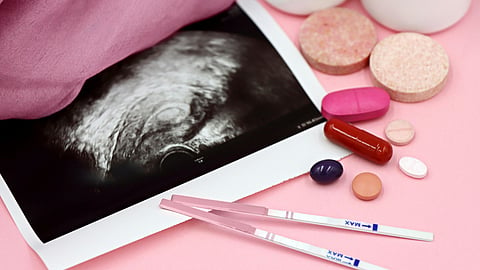Is egg freezing the right decision for you? Here's what you need to consider
For decades, fertility conversations centered around women “running out of time.” But science has evolved, and so has the narrative. Egg freezing, once considered a last resort, is now being embraced as a proactive choice, especially by women who can afford the procedure.
What makes egg freezing appealing?
First, consider the prices and whether or not, it is in your budget. The cost of egg freezing in India typically ranges from ₹1.5 to ₹2.5 lakh per cycle in India, not including storage or future IVF costs. This price can vary based on factors like the clinic's reputation, the duration of storage and any additional services required.
It’s also physically and emotionally demanding, involving hormone injections, clinic visits, and a minor surgical procedure. And there’s no 100% guarantee of future pregnancy.
If you can afford it, then consider why. Biologically, women’s egg quality and quantity decline with age, typically beginning in the early 30s and accelerating in the late 30s. Freezing your eggs in your 20s means preserving them at their healthiest and most viable state. This can increase the chances of a successful pregnancy later on, should you need it.
Egg freezing offers peace of mind
Let’s face it: juggling careers, education, travel, and finding the right partner can be overwhelming. It’s not a guarantee, but knowing you’ve given yourself another option can reduce the pressure to make rushed choices about relationships or parenthood.
Many women today are choosing to build their careers, start businesses, or explore the world before settling down. Egg freezing offers a sense of reproductive autonomy, allowing you to plan parenthood on your own timeline.
Studies show that eggs frozen in a woman’s 20s are significantly more likely to lead to successful IVF outcomes than those frozen in one’s late 30s or 40s. While it’s possible to freeze eggs at any point before menopause, earlier is better in terms of quality.
Younger women may respond better to hormone stimulation, meaning they can retrieve more eggs per cycle. This can reduce the need for multiple costly or taxing rounds of freezing in the future.
What about success rate?
The process of egg retrieval, storage, fertilisation, and eventual implantation is intricate and involves several stages. According to the American Society of Reproductive Medicine (ASRM), the success rates for egg survival after vitrification and thawing range from 90% to 97%.
Following that, the fertilisation rate stands at around 75%. However, only about 25% of the resulting embryos successfully implant in the uterus, leading to an overall pregnancy success rate of approximately 10% to 15%.
If you're thinking about freezing your eggs, it's important to review your insurance plan, consult your doctor, and look into alternative financial options if needed.
The good news is, more insurers and employers are starting to acknowledge the importance of fertility preservation, which could lead to broader coverage down the line.
As always, consult with a fertility specialist to understand if it’s the right choice for you.
For more updates, join/follow our WhatsApp, Telegram and YouTube channels.

